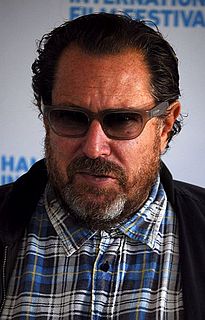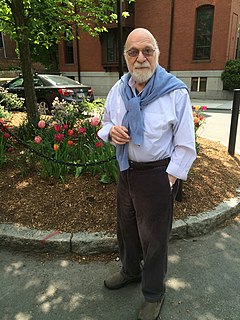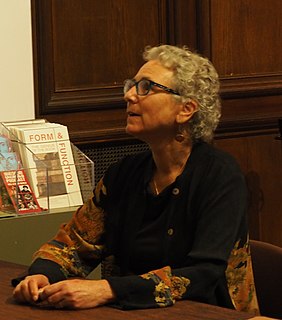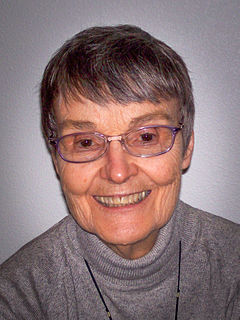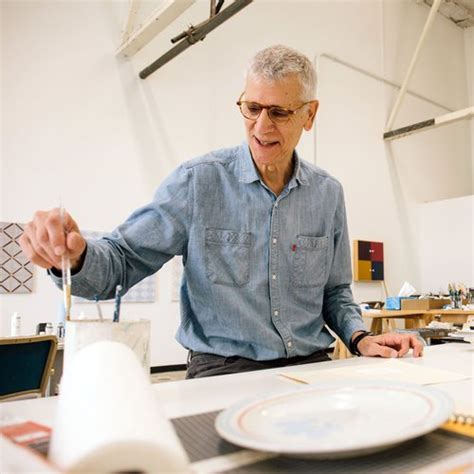A Quote by Julian Schnabel
This camera works like photosynthesis. It is as if you were Xeroxing your own face. The pictures have such physicality: their surface is like fine leather, stained from chemicals. Each one has a body and is more than an image.
Related Quotes
There was actually a camera on your face. I don't know so much about the animation process but the camera was in our face so it could get expressions from our faces that would eventually arrive on the gnomes. It almost felt like you were cheating at times because it was a wee bit too much fun. You were in that box on your own. Kelly [Asbury] was in Toronto, I was in LA, so I was just on my own. I thought: "I can't be getting paid for this as well!"
Under examination by the camera, a human body becomes for its inhabitant a field of betrayal more than a ground of communication, and the camera's further power is manifested as it documents the individual's self-conscious efforts to control the body each time it is conscious of the camera's attention to it.
to love life, to love it even when you have no stomach for it and everything you've held dear crumbles like burnt paper in your hands, your throat filled with the silt of it. When grief sits with you, its tropical heat thickening the air, heavy as water more fit for gills than lungs; when grief weights you like your own flesh only more of it, an obesity of grief, you think, How can a body withstand this? Then you hold life like a face between your palms, a plain face, no charming smile, no violet eyes, and you say, yes, I will take you I will love you, again.
You can domesticate your body, but you can't domesticate your face - even by having a lift or having your nose bobbed. A face bears the reflection of our nature, which in the beginning is veiled by the attractiveness of youth. But as soon as youth begins to go, everything written on the face starts to come to the surface, and pretty soon it's engraved there. No landscape can equal a human face that's been molded by its own owner.
Every one of you sitting here today is carrying at least 500 measurable chemicals in your body that were never in anybody's body before the 1920s... We have dusted the globe with man-made chemicals that can undermine the development of the brain and behavior, and the endocrine, immune and reproductive systems, vital systems that assure perpetuity... Everyone is exposed.
And I despise your books, I despise wisdom and the blessings of this world. It is all worthless, fleeting, illusory, and deceptive, like a mirage. You may be proud, wise, and fine, but death will wipe you off the face of the earth as though you were no more than mice burrowing under the floor, and your posterity, your history, your immortal geniuses will burn or freeze together with the earthly globe.
i like my body when it is with your body. It is so quite new a thing. Muscles better and nerves more. i like your body. i like what it does, i like its hows. i like to feel the spine of your body and its bones, and the trembling -firm-smooth ness and which i will again and again and again kiss, i like kissing this and that of you, i like, slowly stroking the, shocking fuzz of your electric fur, and what-is-it comes over parting flesh ... And eyes big love-crumbs, and possibly i like the thrill of under me you so quite new.
The story, I like to say and remember, is always smarter than you—there will be patterns of theme, image, and idea that are much savvier and more complex than what you could come up with on your own. Find them with your marking pens as they emerge in your drafts. Become a student of your work in progress. Look for what your material is telling you about your material. Every aspect of a story has its own story.
The first time I worked with colors was by making these mosaics of Pantone swatches. They end up being very large pictures, and I photographed with a very large camera - an 8x10 camera. So you can see the surface of every single swatch - like in this picture of Chuck Close. And you have to walk very far to be able to see it.
The narrative image has more dimensions than the painted image - literature is more complex than painting. Initially, this complexity represents a disadvantage, because the reader has to concentrate much more than when they're looking at a canvas. It gives the author, on the other hand, the opportunity to feel like a creator: they can offer their readers a world in which there's room for everyone, as every reader has their own reading and vision.
